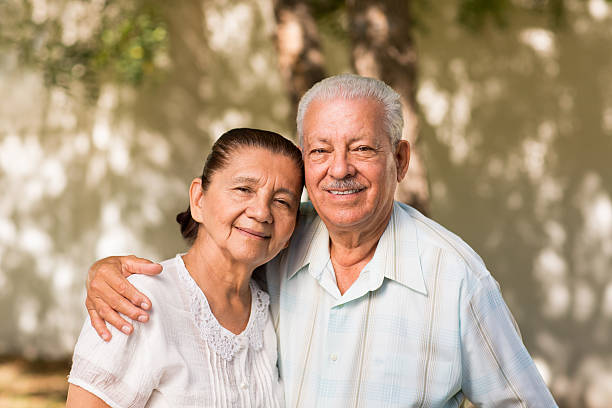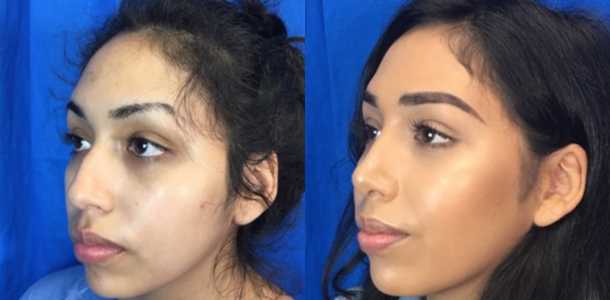Colonoscopy
Consultations offered at our four convenient locations in Pomona, Beverly Hills, Rancho Cucamonga and Apple Valley, CA

A colonoscopy is a lifesaving, proactive measure that screens the colon for underlying symptoms or illnesses. This procedure allows a doctor to examine the interior of the large intestine and evaluate lower gastrointestinal conditions such as internal bleeding, abdominal pain, changes in bowel function, anemia, and signs of colon cancer. A small, elastic endoscopic tube, called a colonoscope is gently introduced to the body to allow for detailed internal imaging.
Having a colonoscopy is a vital way to diagnose and treat serious gastrointestinal conditions that often don’t present symptoms–like colon cancer. This short procedure can ensure you lead a long, healthy, life. For over 33 years, Dr. Lee Au has been serving Southern California with an impeccable safety record and high patient satisfaction. Take an empowered step in your health and schedule a consultation with Pacific Med Health Group in Los Angeles and San Bernardino counties. Or call us at (800) 555-5551.
Contents
About
According to the National Cancer Institute, colorectal cancer is one of the most common cancers in the U.S. It affects all adults, although men and African Americans are at higher risk, and it usually occurs in those 50 years or older. [1] The best way to avoid becoming part of these statistics is to get a colonoscopy. Colonoscopies save lives by detecting colon cancer early. As a result, nearly 14 million colonoscopies are performed each year in the United States.
The process is simple. While resting comfortably, a small instrument called a colonoscope is inserted into the rectum. As it moves through the large intestine, it transmits high-quality images of the bowel onto a screen, so that Dr. Au can carefully inspect the lining of this important organ for any abnormalities. Dr. Au may take a skin sample to perform a biopsy for further diagnosis. The entire process takes 30-60 minutes.
What is colon cancer?
Colon or colorectal cancer is a disease that begins in the large intestine (colon). And in its early stages, it’s typically asymptomatic. Small growths called adenomas and polyps can form on the lining of the colon. Not all are cancerous, and only a colonoscopy can determine whether these growths are a cause for concern. However, as they increase in size, the chance that they become cancerous also greatly increases. This exam also allows Dr. Au to remove any growths that are present endoscopically. Removing them can prevent them from growing larger and potentially cancerous in the future. It also allows him to biopsy the tissue to determine whether these small growths show evidence of cancerous cells. If colon cancer is present, treatment can begin swiftly.[2]
The Benefits of a Colonoscopy
Having a colonoscopy done is an important diagnostic procedure that should be performed regularly.
- Screens for colon cancer and other gastrointestinal diseases: The exam helps identify signs of abdominal pain, bleeding, chronic constipation, diarrhea, and other intestinal problems.
- Painless procedure: Colonoscopy patients are given sedatives and or anesthesia to optimize their comfort.
- Quick process: The entire examination takes place in under an hour. You can go home immediately after.
- Peace of mind: Being proactive about your intestinal health can save your life. And, because colon cancer is often genetic, knowing your risk also helps those you love to understand their risk of colon cancer.
Who Should Get a Colonoscopy
If you are 50 years of age or older, it’s crucial to have a colonoscopy. The American Cancer Society recommends men and women to test for colorectal cancer every 10 years if deemed to be at average risk. [3] You may need to be screened earlier or more frequently if you have experienced the following:
- Had colorectal cancer or polyps in the past
- Have a history of inflammatory bowel disease
- Family history of polyps or colorectal cancer
- Intestinal symptoms that need further study
Safeguard your health and schedule a consultation at Pacific MedGroup. Dr. Au and his staff are dedicated to creating a welcoming atmosphere and informative experience that will put you at ease.
Personal Consultation with Dr. Au
Pacific Med Group is here to help you take control of your health, and offers convenient locations dotted across Los Angeles and San Bernardino counties. We have state-of-the-art offices in Beverly Hills, Pomona, and Apple Valley. Regardless of the location you choose, our friendly staff will help you prepare for your appointment.
Schedule a consultation or give us a call at (800) 555-5551 to learn more.
During your consultation, Dr. Au will get a complete picture of your health by reviewing your medical record, surgical history, and current and past prescriptions. He’ll also listen to your concerns, and whether you are experiencing symptoms such as cramping, bleeding, or inconsistent bowel movements. If these symptoms are chronic, and interfering with your quality of life, then you will be approved for a colonoscopy.
It should be noted that patients who are at moderate risk may not need a consultation. However, most patients are referred to us by their doctor. As always, please consult with your Primary Care Physician (PCP) for instruction.
Preparing for your Colonoscopy
Proper preparation is essential for an accurate colonoscopy. You’ll be given instructions and special medications to ensure that your bowels are completely empty. Any residue may obstruct Dr. Au’s view of your colon and rectum in the exam. Improper bowel preparation is the leading cause of missed cancerous growths and avoidable additional procedures.
Before your colonoscopy you will need to:
- Fast as instructed
- Take a prescription laxative: A course of this laxative, including a dose the night before your appointment will remove traces of stool that could obstruct a clear view of your intestine.
- Adjust medication schedule: Make sure we are aware of your current medication list. Certain medications may conflict with the screening process.
- Arrange for transportation: Select a trusted friend or family member to drive you home.
During a Colonoscopy
Before your colonoscopy begins, our staff will administer the proper medication to make sure that you remain comfortable during the procedure. As you lie on your side, Dr. Au will carefully insert the colonoscope into the rectum. The tube contains a camera at the tip that transmits real-time, high-definition images on a screen so Dr. Au can view them. The tube will be carefully guided through the colon all the way to the cecum, or the pouch that forms the first part of the large intestine. [4] Air may be blown inside to inflate the colon slightly for a better view. If you have abnormal growth, or polyp, in your colon, the doctor will remove it endoscopically. The small tissue sample will be sent to a lab for further examination. If the growth is too large or hard to remove, this may need to be done at a later time. Dr. Au will also be looking for any sign of inflammation or ulceration, diverticular disease, and unusual bleeding. The entire process should be done in under 1 hour.
Recovery
You will be under our care for 1-2 hours until the sedatives wear off. It is recommended you take a day off work to recover completely. Bloating and gas are common. Otherwise, patients are able to return to their routines the very next day. If a biopsy or polyp was removed during your colonoscopy, you may see blood in your stool for a few days.
Colonoscopy Results
If no irregularities were found during your colonoscopy, Dr. Au will be able to give you the good news as soon as you recover from sedation. If he did have to biopsy any growths, the results will be available in a few days. However, since you will still be under the influence of the sedative after your colonoscopy, you’ll receive results in writing and Dr. Au will schedule a time at a later date to more thoroughly discuss your results.
- If the colonoscopy finds no abnormalities, moderate risk patients should get re-tested in 10 years.
- Those with a history of polyp growth should plan for another colonoscopy in 5 years.
- If there was abnormal tissue detected in the colon, Dr. Au will determine the next best steps for further investigation and/or treatment.
Cost
Many insurance carriers cover the cost of a colonoscopy. We accept various HMO and PPO networks. To be sure that your insurance will cover this exam, please consult our insurance verification form. Fill out the form and we’ll be in touch about any cost associated with your examination.
References
- American Cancer Society Guideline for Colorectal Cancer Screening. (2013). Cancer.org; American Cancer Society. https://www.cancer.org/cancer/colon-rectal-cancer/detection-diagnosis-staging/acs-recommendations.html
- Rees CJ, Bevan R, Zimmermann-Fraedrich K, et al. Expert opinions and scientific evidence for colonoscopy key performance indicators. Gut. 2016;65(12):2045-2060. doi:10.1136/gutjnl-2016-312043
- Sharma, P., Burke, C. A., Johnson, D. A., & Cash, B. D. (2020). The importance of colonoscopy bowel preparation for the detection of colorectal lesions and colorectal cancer prevention. Endoscopy International Open, 8(5), E673–E683. https://doi.org/10.1055/a-1127-3144
- Lee E, Shafer LA, Walker JR, et al. Information experiences, needs, and preferences of colonoscopy patients. Medicine. 2019;98(20):e15738. doi:10.1097/md.0000000000015738



